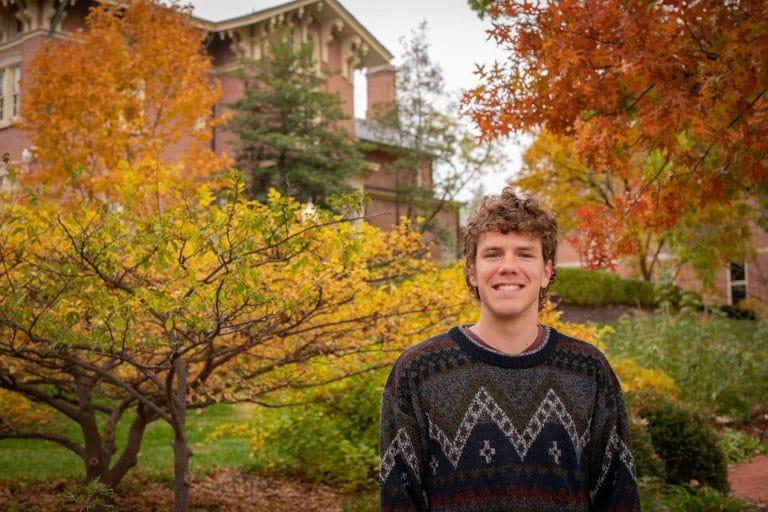
Somewhere there is a gap between what we think the world should be and what policies can actually effect positive change. Bridging the two is something that TSPA student Michael Gawlick dedicated himself to as a Public Policy Fellow for the Urban Leaders Fellowship this past summer. The fellowship was centered on facilitating systems-level change, a harmony between problem-solving and an understanding for how such policy affects a broader community. A core philosophy of the Urban Leaders is “to impact real and lasting change, creating smart policy is not enough. At ULF, our fellows spend the other half of their time working at a company or organization that is equally committed to social justice and positive impact.”
Michael spent mornings on the street level, working with non-profits in Denver to deliver services directly. Michael helped address the needs of a school and personally led the construction of a workshop with his coworker Gus Nemechek. He devised its safety curriculum and even took on some of the manual labor himself. In the afternoons, Michael would research policy and work on teams flesh out policy ideas for State Representative James Coleman.
Michael developed a local perspective, identifying immediate needs of a microcosm and then envision macroscopic change for a bigger system. This forced him to get creative in areas where he had little experience and think about underlying currents that led to the problems he saw at the street-level. “Policy-making versus street level service delivery differs greatly. Each has a purpose, and both work together, but the positions differ in their approach to a public problem. When we look to encapsulate an issue such as homelessness, we can take many different vantage points in addressing the problem,” Michael said. “There are myriad variables that go into why someone may be on the streets. So, we have to adjust our thinking on how we address the problem. Street level direct action is fantastic but to create lasting change we have to evaluate the system as a whole.”
Michael reflected on his experience intersecting empathy and analysis, “on a systems level, we have to develop practical solutions that act as a web of support to fix a problem. This is a vast and complex network to address. However, when we ignore problems, we are in fact making a policy/ethical choice. We must question our values. What do we want? Do we view that homeless person as someone that makes us uncomfortable, or do we see him or her as a son or daughter that is struggling and needs that systems-level of support.”
After a formative summer, Michael returned to the Institute of Public Policy housed in the Harry S Truman School of Public Affairs. As he takes classes and conducts research, he wrestles questions addressing society’s most confounding and intractable problems. Empathy and reason are moving him forward.
Michael would like to thank Regional Director Marco Dorado, Founder of 5280 High School Melissa Mouton, State Representative James Coleman, Former State Senator and Founder of ULF Mike Johnston, Kat Marulanda, Gus Nemechek, his policy team (Sarah Duska, Jen Gurganus, Aubrey Prugger), those in his ULF Cohort, and the local businesses and government organizations that collaborated with their policy team to develop policy recommendation for the Colorado General Assembly.